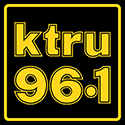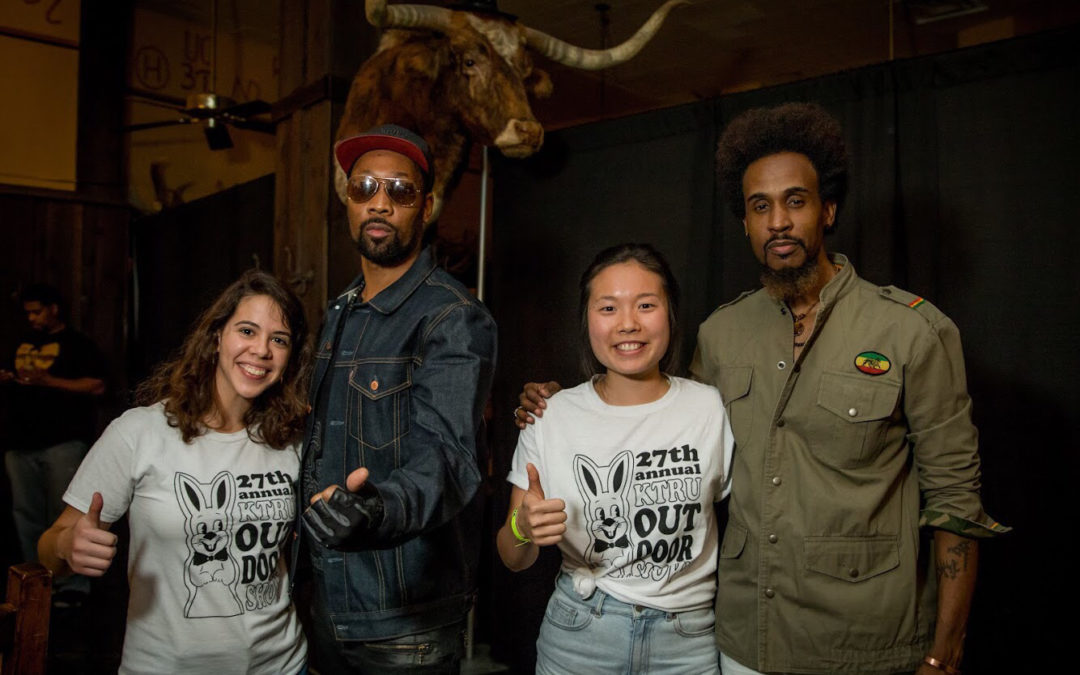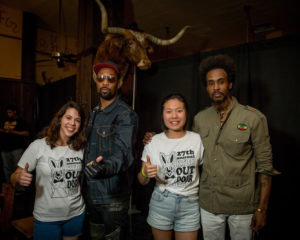Sam Ding and Arlen Suarez talked to RZA at Fortress Festival in Fort Worth, TX. The conversation started with hip-hop, but RZA also gave his surprising insights on vegetarianism, veganism, environmental consciousness, and music as therapy.
SD: We’re from Houston so we wanted to hear your thoughts on on the southern music scene and the influence it has had on you. What are your thoughts on the music scene in Houston?
RZA: Houston has always had a great music scene, if you just want to talk about hip-hop. Look at the Geto Boys–they pioneered a lot of lyricism from the South. People would know Texas for the blues and some country music as well, and like I said Houston has the Geto Boys and UGK. Because of what they were doing, hip-hop was able to go national. When Jay-Z was really popular in the East Coast, he did a song with UGK, Underground Kingz, and then it spread. That was one of his early number one songs, so Houston has been important. And for me personally, when I did my first single as a kid called Ooh We Love You Rakeem, there was a Houston DJ named Jimmy Olsen who played it on the radio and got me into the countdown. It was the second city that I ever had a chance to fly to from New York and do a show. So I always have had a love for Houston.
SD: Do you go often?
RZA: I haven’t been there in about 4 years, but at one point I was hanging out there, hanging in different wards. There was another gentleman, Will Strickland, who’s now teaching hip-hop music in college in Canada. But he’s taught it in Houston as well, as a college DJ, and he went on to teach hip-hop in other countries.
SD: Bun B also helps out teaching at Rice, too.
RZA: It’s a beautiful thing.
AS: So you have an interest in music obviously, but also in making movies and the movie industry. Do you have any thoughts or preferences between them?
RZA: I have many artistic inspirations but I will say that making movies is the one medium that encompasses everything. It’s like if I could just do that I’ll be satisfied, because making a movie, I can do lyrics, I can paint or draw, storyboard in, write. I also love photography, so when I make movies I get a chance to play with the cameras. Making a film is actually a culmination of all artistic expressions and it takes people from every field of art to do it. Even a carpenter has to be involved, a guy that knows about electricity has to be involved, costume designing, all these things. I never knew it when I was making music that I was actually preparing myself to be a movie director. I’m working on my third film, called Cut Throat City. I’m just on a high. Music is now like a secondary hobby for me because it is natural, but film takes so much mind power. A lot of mind power.
SD: How have you seen the hip-hop scene change since the days of Wu Tang Clan and now?
RZA: Oh wow. There has been a great change in the sense that we went through a lot of different phases. Hip-hop was first an East Coast thing, then a West Coast thing, then it came back to the East Coast, and then the South grabbed it, and then the Midwest with Kanye and Eminem. Now it’s a global thing. I first heard hip-hop when I was 7 years old. And at the time, only 500 people knew what it was, and now almost five billion people know what it is. So for me, it’s a blessing to watch it grow to a worldwide sensation, and as far as Wu-Tang we’re happy to be part of that. You know, I think at one point we we lost some of the lyrical content, but I think it’s coming back now, with Kendrick winning the Pulitzer Prize, J. Cole’s new album, and even Cardi B and Nicki Minaj on the female side showing lyricism–along with partying because it is a type of music that’s about fun. Music is supposed to make you have fun. So there’s been some changes of course, but I think it’s changing for the greater.
SD: There’s so much stuff out there now and a lot of people think a lot of it’s trash, but that also means there’s a lot of good content that comes out of it.
RZA: The only issue that hip-hop is facing is identity. Before, if you put on a record, you could tell who was from where. You could tell Bun B was from the South. You could tell Jay-Z was from the East. You could recognize the voice of Craig Mac, Biggie Smalls, Tupac, Method Man, Raekwon–you could recognize all these voices. Now if a mix of five songs comes on, they kind of sound like the same guy on those five songs. So what’s lost is some of its individuality.
SD: Especially with beats, people steal them and use the same beat.
RZA: Yeah.
AS: I understand that at some point you were vegetarian and I’m curious, were you always vegetarian?
RZA: Oh no, I started off as a pork eater. We killed the pig, then we would cook his ass. And get sick, and do it again. But I got conscious. I realized that I don’t need to put a dead animal into my live body. The animals that we eat, they don’t eat meat. The cow eats grass, and he can weigh up to 2,500 pounds. And he could even pull the strength of about 8 to 10,000 pounds, eating grass. So it makes me think that that’s the way for me to gain strength and muscle, and I also became conscious that if I’m putting something dead in my body that’s decaying, that would decay me quicker. Now scientists are saying that most men over the age of 45 need to be screened for colon cancer because of red meat, because their bodies don’t digest it. It’s just sitting there like clogged tissue in a pipe. I’m glad that I was conscious of that. Same thing with a dead bird. I used to eat 25 chicken wings. Then one day I bit one and I said, why am I eating a dead bird? It looks nice, it smells nice, but this is a dead f****** bird. It’s like I’m in New York City, I just saw a pigeon and now I’m eating it like it’s nothing.
I have a son that’s 12 years old. He’s never had a piece of meat, fish, or chicken in his life. He’s on the basketball team, just got his yellow belt in Taekwondo, DJs, plays music, and scores 90s on his math test.
As far as veganism, it could be a little extreme. I like to use an example of a great man who lived named Krishna. He was a great king in India, who they later went on to worship as a god. He would never eat meat either, only vegetables, but he ate butter. Because the animal was good if it was useful. It’s not useful when it’s dead. So it’s okay if you wear a wool shirt because that animal produces the wool for you, especially if you live in an environment when you need that kind of protection. But if you’re going to kill a chinchilla, or possum, for its fur, and he’s dead, he can never produce again.
I’ll say one more parable. It’s the same principle that goes with almost everything, right? It’s like the Bible says, be fruitful and multiply. That means you can take an apple, and just eat it, and throw it away, and it would decay and its nutrients would feed some other form of life, and that apple is happy with that. But you could take that same apple, eat it, and then plant its seeds, and you get an orchard. Man has to be learn how to be useful with his dominion. We have dominion over the whole planet. But we’re losing over 10 animals a day that are becoming extinct. We’re killing them, eating them. I don’t know who was the first person who pulled out a lobster, looked at it, and was like, that looks good. I don’t know who that guy was. But at the end of the day, it’s poisonous.
SD: I never thought I’d be talking about vegetarianism with you. How has your philosophy about music and life in general, shifted or evolved throughout your career, and throughout your life?
RZA: Well music is part of life. I don’t think a day goes by that you don’t hear music. You don’t watch a movie without music. It’s everywhere. It’s part of life. You should appreciate it and for me the consciousness of it has really embedded itself in my senses. I do some kind of music everyday, whether or not it’s recorded. I get up in the morning, and when I have my cup of coffee, I sit there with my piano, and I just play. And then I go to work. Music is harmony, and I’m glad I know that, and recognize that. I wish we would reintroduce it back into our schools system.
We have a problem right now with guns. I had a concept I wanted to share called “trading your gun for a guitar”. Because music is worth something and you can use it to get your aggression out. Wu-Tang saved my life because I was able to express myself. Some of the Wu-Tang members said that to me too, that music is like therapy because it gets all of your ideas, all that shit out, and into a creative form.


